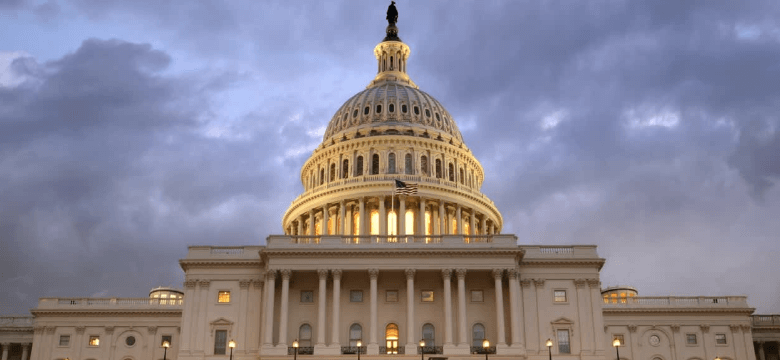
On Wednesday, the US House is set to vote on the legalisation of marijuana, which could effectively end the federal ban on cannabis.
The Marijuana Opportunity Reinvestment and Expungement (MORE) Act will be taken up by the House Rules Committee, with a vote on the floor expected by the end of the week.
Table of Contents
What happens if the bill passes?
In 2020, the House passed a version of the legislation, with six Democrats voting against the bill and five Republicans voting in favour of it. Unfortunately, Republicans controlled the Senate at the time, and the vote took place but did not advance. However, the vote will now take place long before the midterm elections, and there's hope again for federal legalisation.
Currently, the US Drug Enforcement Agency (DEA) classifies marijuana as a Schedule I controlled substance under the Controlled Substances Act (CSA). This means it has no approved medical use, and there is a high risk for abuse. If the MORE Act passes, cannabis will be removed from the list of federal controlled substances, and all criminal penalties will be abolished. The bill will also put a process in place to expunge former convictions.
Furthermore, the MORE Act will impose a federal tax on the sale of marijuana. This tax will be used to fund outreach programs to help communities affected the worst by the war on drugs.
House Majority Leader Steny Hoyer (D-Md.) outlined the bill, advising that it will “restore justice to communities that have been disproportionately impacted by harsh penalties for possessing even small amounts of marijuana.”
“This legislation — which the House passed last Congress — would decriminalise marijuana, expunge the federal arrests and convictions of non-violent marijuana offenders, prohibit the denial of federal public benefits, and provide resources to support long-term economic recovery efforts for communities of colour.”
What are the chances of the bill passing?
Several states throughout the US have already started legalising marijuana, with at least 37 states allowing cannabis products for medical use and 18 states adopting legislation to allow the recreational use of cannabis.
However, marijuana legislation is set to meet opposition in the Senate. It would require 60 votes in total, including the support of at least 10 Republican senators if every Democrat voted in favour, to advance.
Fortunately, there is hope that it could finally be legalised. Especially after the news that the Bipartisan Marijuana Research Bill was approved unanimously last Thursday. This shows that steps are being taken towards legalisation.
The Cannabidiol and Marijuana Research Expansion Act is in place to promote marijuana research. It simplifies the application process and motivates the Food and Drug Administration (FDA) to pursue the development of cannabis-derived medications.
With the bill in place, physicians can discuss the potential benefits and risks of marijuana with patients, without it being a violation. Furthermore, physicians have the right to request that the US Department of Health and Human Services (HHS) provide a study on marijuana's potential health benefits, as well as the challenges that cannabis research faces and how to overcome them.
According to one of the bill’s sponsors, Senator Brian Schatz (D-HI), “We are now one step closer to removing excessive barriers that make it difficult for researchers to study the effectiveness and safety of marijuana, and hopefully, give patients more treatment options.”
Key takeaways – Will this end federal ban on cannabis?
For decades, cannabis activists have been fighting for legalisation, and it looks like we’re closer than ever before. Finally, it seems like those in power are catching up with public feelings and seeing the potential benefits cannabis may offer. However, we need to wait and see what Wednesday brings before getting too hopeful. Will the US finally embrace cannabis? Or will the opposition come out on top? That remains to be seen.
You may also like to read: Cannabis Laws UK- Is weed legal in the UK?





